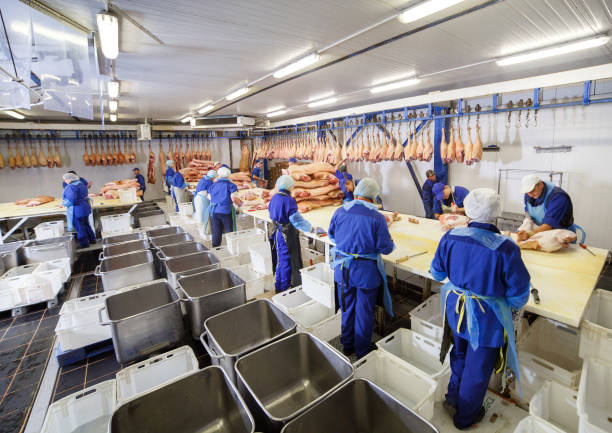Canada, with its breathtaking landscapes, strong economy, world-class healthcare, and welcoming multicultural society, has long been a dream destination for people around the globe. Whether you’re drawn by its beautiful natural wonders, high standard of living, excellent education system, or opportunities for personal and professional growth, Canada offers something for nearly everyone.
🌍How ready are you?
Fortunately, the Canadian government recognizes the value that newcomers bring to the country and has designed a wide range of immigration pathways to help individuals and families settle and thrive there. Whether you are a skilled worker, student, entrepreneur, or someone seeking to reunite with family, there is likely a program that suits your goals.
In this blog post, we’ll walk you through 10 of the most popular and accessible pathways to migrate to Canada, highlighting the key features of each. From the popular Express Entry system to provincial programs and family sponsorship options, this guide will help you better understand the options available — and hopefully make your Canadian dream a reality.
So, grab a notebook, get comfortable, and let’s dive into the top pathways that can set you on the road to your new life in Canada!
1. Express Entry System
The Express Entry System is one of the most popular and efficient routes for skilled workers aiming to secure permanent residency in Canada. Launched to streamline the immigration process, it operates as an online, points-based system that manages applications under three key programs: the Federal Skilled Worker Program (FSWP), the Canadian Experience Class (CEC), and the Federal Skilled Trades Program (FSTP).
Candidates create an online profile where they are awarded a Comprehensive Ranking System (CRS) score based on factors like age, education, skilled work experience, language proficiency in English or French, adaptability (such as having a spouse who speaks a Canadian official language or prior Canadian work/study experience), and whether they have a valid job offer or provincial nomination.
Canada conducts regular Express Entry draws, inviting the highest-ranking candidates to apply for permanent residence. One of the key advantages of this system is its speed — most applications are processed within six months after submission.
Tips for Success:
-
Prepare for language exams early. High scores on approved language tests such as IELTS or CELPIP can significantly boost your CRS score.
-
Upgrade your education. If possible, consider additional certifications or degrees, and ensure you complete an Educational Credential Assessment (ECA) to validate foreign qualifications.
-
Gain relevant work experience. Skilled work experience in a qualifying occupation can strengthen your profile.
-
Secure a valid job offer or provincial nomination. Both can provide a substantial CRS score boost and improve your chances of receiving an invitation to apply.
-
Stay informed. Regularly check government updates, CRS score trends, and program changes to stay ahead in the process.
By carefully preparing and enhancing your profile, you can significantly improve your chances of receiving an invitation and successfully immigrating to Canada through the Express Entry System.
2. Provincial Nominee Programs (PNPs)
The Provincial Nominee Programs (PNPs) provide a valuable pathway to Canadian permanent residency for individuals whose skills, education, and work experience match the specific economic and labor market needs of individual provinces or territories. Each province and territory (except Quebec, which has its own system) operates its own PNP with unique streams targeting skilled workers, semi-skilled workers, entrepreneurs, and graduates.
What makes PNPs particularly attractive is that they allow provinces to select candidates who are most likely to contribute to their local economy and integrate successfully into their communities. Some PNP streams are aligned with the federal Express Entry system (known as “enhanced” streams), while others operate independently (“base” streams).
A provincial nomination is highly valuable because it awards 600 additional points to a candidate’s Comprehensive Ranking System (CRS) score if they are in the Express Entry pool, virtually guaranteeing an invitation to apply for permanent residency.
Tips for Success:
-
Understand provincial differences. Each province has its own criteria, priority occupations, and application process. Take time to study the specific PNP stream that matches your profile — whether it’s aimed at healthcare workers, tech professionals, tradespeople, or international graduates.
-
Align your skills and experience. Focus on provinces that actively seek workers in your field. For example, Saskatchewan may prioritize agricultural workers, while British Columbia often looks for tech talent.
-
Monitor demand lists. Provinces regularly update their in-demand occupations lists. Stay informed to seize opportunities when your occupation appears on a list.
-
Prepare documents in advance. Gather educational credentials, work experience letters, proof of language proficiency, and other required documentation early to avoid delays during the application process.
-
Be open to less popular provinces. While provinces like Ontario and British Columbia attract many applicants, lesser-known regions like Manitoba, Newfoundland and Labrador, or Prince Edward Island often have programs with less competition and more favorable odds.
By strategically matching your skills to the needs of a province and staying organized with your documentation, you can improve your chances of securing a provincial nomination and moving one step closer to Canadian permanent residency.
3. Study in Canada
Overview: Studying in Canada is not just an academic pursuit but a strategic pathway to permanent residency. The Post-Graduation Work Permit Program (PGWPP) allows international students who have completed eligible programs at designated learning institutions to work in Canada. Gaining Canadian work experience through PGWPP enhances your chances of securing permanent residency.
Tips: Choose a designated learning institution and a program that aligns with the skills in demand in Canada. Network and seek employment opportunities during your study period.
University of Birmingham Football Scholarship
4. Family Sponsorship
Overview: Family reunification is a core value in Canadian immigration policy. If you have a family member who is a Canadian citizen or permanent resident, they can sponsor you for immigration. This pathway allows families to stay together and build a new life in Canada.
Tips: Ensure that you meet the eligibility criteria for family sponsorship. Engage with your sponsoring family member to understand the responsibilities and requirements of the sponsorship process.
5. Job Offers and Work Permits
Overview: Securing a valid job offer in Canada is a significant asset in the immigration process. Programs such as the Temporary Foreign Worker Program (TFWP) and International Mobility Program (IMP) enable Canadian employers to hire foreign workers to fill skill shortages.
Tips: Leverage job search platforms, networking events, and recruitment agencies to explore job opportunities in Canada. Ensure your skills and qualifications meet the requirements of the Canadian job market.
6. Start-Up Visa Program
Overview: The Start-Up Visa Program is designed for entrepreneurs with innovative business ideas. By securing a commitment from a designated organization, entrepreneurs can bring their business vision to Canada and eventually obtain permanent residency.
Tips: Develop a comprehensive business plan and establish connections with designated organizations that can support your start-up idea.
University of Sussex MBA Scholarships 2024/2025, UK
7. Atlantic Immigration Pilot Program (AIPP)
Overview: The Atlantic Immigration Pilot Program (AIPP) addresses labor market needs in Canada’s Atlantic provinces—Newfoundland and Labrador, Prince Edward Island, Nova Scotia, and New Brunswick. Employers in these provinces can nominate skilled workers for permanent residency.
Tips: Explore job opportunities in the Atlantic provinces and connect with employers participating in the AIPP. Ensure your skills align with the needs of the local labor market.
University of Sydney UBtech PhD Scholarship
8. Caregiver Programs
Canada places a high value on the contributions of caregivers and has developed specialized immigration pathways to attract individuals who can provide essential care services. The Caregiver Programs are designed for those who care for children, elderly individuals, or people with disabilities and medical needs. These programs not only allow caregivers to work in Canada but also offer them a pathway toward permanent residency, making it an excellent opportunity for those seeking long-term settlement.
Currently, Canada offers caregiver pathways such as the Home Child Care Provider Pilot and the Home Support Worker Pilot, both of which aim to address critical labor shortages in households across the country. Eligible candidates can bring family members with them and eventually apply for permanent residency after meeting work experience requirements.
Tips for Success:
-
Understand program requirements. Each caregiver stream has specific eligibility criteria related to education, language ability, and relevant work experience. Make sure you meet these standards before applying.
-
Connect with Canadian families or employers in need of caregiving services. Explore job boards, immigration consultant platforms, or Canadian employer listings to find legitimate opportunities. You can also look into elder care jobs that often offer visa sponsorship by visiting this resource: Elder Care Jobs.
-
Prepare your documentation. Ensure you have the necessary certificates, reference letters, language test results, and educational credential assessments ready.
-
Explore complementary immigration options. For example, if you have an interest in studying to improve your qualifications or language skills, consider learning more about the benefits of studying abroad in Canada here: Studying Abroad.
-
Consider your long-term plans. After gaining work experience, you may be eligible to transition to permanent residency, which allows you and your family to settle permanently in Canada.
In addition to caregiving, Canada also offers pathways for business-minded individuals, so if you are an entrepreneur or investor looking to immigrate, you might want to check this guide on how to get a Canada Business Visa here: How to Get a Canada Business Visa.
By preparing carefully, aligning your skills with the right caregiver stream, and exploring related opportunities, you can build a successful path toward living and working in Canada as a caregiver.
9. Rural and Northern Immigration Pilot
The Rural and Northern Immigration Pilot (RNIP) is a community-driven program aimed at attracting skilled foreign workers to smaller and often overlooked communities across Canada. While many immigrants gravitate toward large urban centers like Toronto, Vancouver, and Montreal, the RNIP was created to help smaller towns and regions fill critical labor shortages, strengthen local economies, and promote long-term community growth.
Participating communities are located in provinces such as Ontario, Manitoba, Saskatchewan, Alberta, and British Columbia. Each community has its own list of eligible jobs and industries where they need workers — ranging from healthcare and manufacturing to hospitality, agriculture, and retail. Unlike some other programs, the RNIP emphasizes not just economic contribution but also community integration, ensuring newcomers are welcomed and supported as they settle into Canadian life.
One of the key advantages of the RNIP is that it offers a pathway to permanent residency for individuals who may have lower Comprehensive Ranking System (CRS) scores and who are willing to live and work outside of Canada’s major metropolitan areas.
Tips for Success:
-
Research participating communities. Visit the official government website to explore the list of RNIP communities, each with its own job openings, employer requirements, and community priorities.
-
Identify matching job opportunities. Look for roles that fit your skills, qualifications, and work experience. Focus on sectors where your expertise will be most valued, such as healthcare, trades, hospitality, or manufacturing.
-
Understand community requirements. Many communities will assess not only your qualifications but also your intention and ability to settle long-term in the area. Be prepared to demonstrate why you are a good fit for the community.
-
Prepare necessary documentation. This includes proof of work experience, language test results, educational credentials, and job offers from eligible local employers.
-
Embrace the lifestyle. Moving to a smaller town offers a different pace of life, often with a strong sense of community, lower cost of living, and proximity to nature. Consider how this lifestyle aligns with your long-term goals.
By carefully researching opportunities and showing a genuine commitment to contributing to a smaller community, the RNIP can open an excellent pathway to permanent residency while providing a meaningful and rewarding settlement experience in Canada.
Cape Breton Scholarships Canada, 2024/2025 (Fully Funded)
10. Global Talent Stream
The Global Talent Stream (GTS) is part of Canada’s Temporary Foreign Worker Program and was created to help Canadian employers quickly bring in highly skilled workers for specialized roles where domestic talent is in short supply. This fast-track program significantly shortens work permit processing times — often to as little as two weeks — making it an attractive option for both employers and foreign professionals.
The Global Talent Stream is divided into two main categories:
-
Category A: For employers who have been referred by one of the program’s designated referral partners and are hiring unique or specialized talent.
-
Category B: For employers hiring highly skilled workers for occupations listed on the Global Talent Occupations List, such as computer engineers, software developers, and digital media specialists.
What sets the GTS apart is its focus on innovation, global competitiveness, and helping Canada’s businesses scale up quickly by accessing world-class talent.
Tips for Success:
-
Connect with eligible employers. Research Canadian companies in your field that have a track record of using the Global Talent Stream or that have urgent talent needs.
-
Understand program requirements. Ensure your professional background aligns with the eligible occupations or that your skill set is unique enough to fit Category A.
-
Showcase your expertise. Prepare a strong resume and portfolio highlighting your specialized skills, international work experience, and notable achievements to strengthen your chances of securing an offer.
-
Stay up-to-date on in-demand roles. The Global Talent Occupations List is updated periodically, so monitor it to ensure your role remains eligible.
Conclusion
Canada’s immigration system offers a wide range of pathways to suit the needs, ambitions, and qualifications of diverse applicants — from skilled workers and students to entrepreneurs and specialized talent. The key to a successful migration journey lies in choosing the pathway that best fits your profile and preparing thoroughly.
By conducting detailed research, understanding the requirements of each program, and strategically aligning your skills and qualifications to the right stream, you can significantly increase your chances of success. Whether you’re applying through Express Entry, a Provincial Nominee Program, or the Global Talent Stream, careful planning, patience, and determination will serve you well.
Wishing you success as you take the exciting steps toward building your future in Canada!






